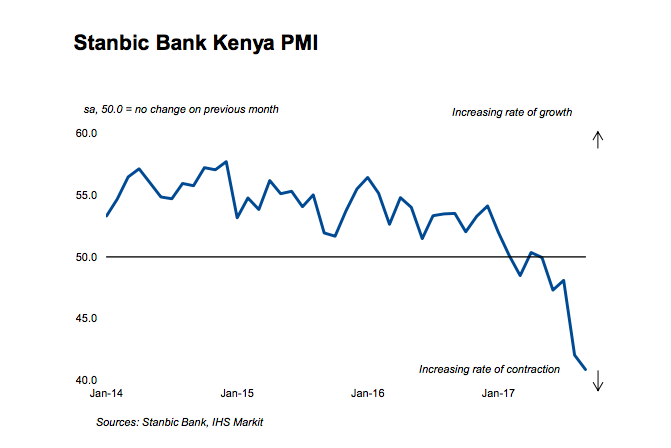The deterioration of the Kenyan private sector intensified during September, driven by an unfavourable political climate.
The seasonally adjusted Stanbic PMI dipped to a new survey record low of 40.9 in September from 42.0 in August. The decline of the private sector was driven by sharp contractions in output and new orders. In response to lower output requirements, firms decreased their payroll numbers. Meanwhile, firms continued to face increases in input costs at the end of the third quarter, but reduced their charges again.
The headline figure derived from the survey is the Purchasing Managers’ Index™ (PMI™). Readings above 50.0 signal an improvement in business conditions on the previous month, while readings below 50.0 show a deterioration.
This was consistent with a sharp deterioration in the health of the private sector. The headline PMI has now recorded below the 50.0 no-change mark for five consecutive months, the longest period of decline observed in the survey’s history.
Commenting on September survey findings, Jibran Qureishi, Regional Economist E.A at Stanbic Bank said:
“For a fifth consecutive month conditions in Kenya’s private sector continued to deteriorate which is reflective of the protracted political impasse in the country. That said, in addition to the aforementioned, firms continue to bemoan the unavailability of access to credit which has been restrained as a consequence of the interest rate capping law. A rebound in the second quarter GDP print to 5.0% was in line with our expectation; however we retain our full year estimate for GDP growth to expand by around 4.8% in 2017, despite the possibility of higher tea production in the fourth quarter of the year, which could be counterbalanced by an entrenched slowdown in the industrial sector.”



